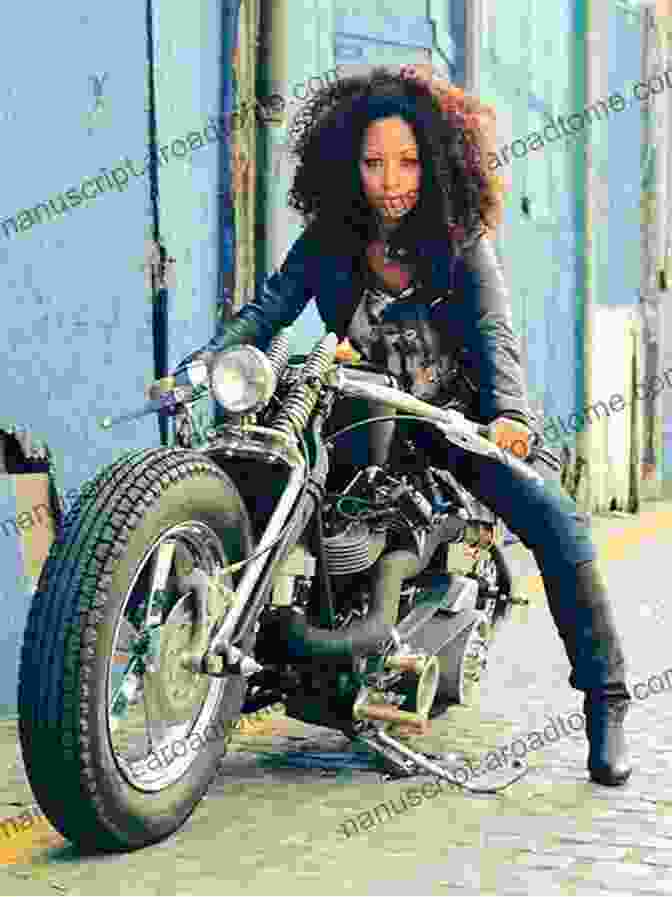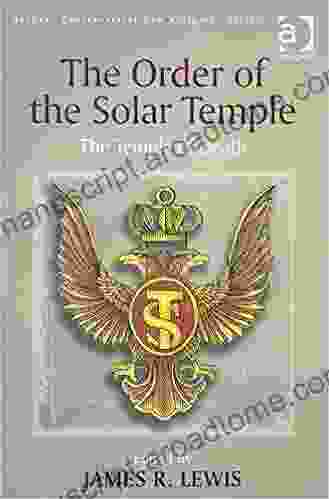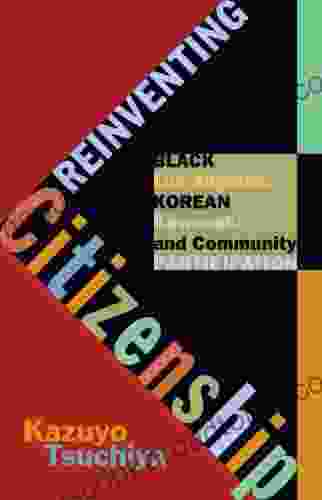Unveiling the Intertwined Histories of Black Los Angeles, Korean American Communities, and the Power of Motorcycles


In the vibrant tapestry of American urban history, the intersection of Black and Korean American cultures in Los Angeles played a pivotal role in shaping the city's social, economic, and cultural landscape. Among this intersection's most striking and influential manifestations was the shared passion for motorcycles, particularly the iconic Kawasaki brand.
4 out of 5
| Language | : | English |
| File size | : | 7182 KB |
| Text-to-Speech | : | Enabled |
| Enhanced typesetting | : | Enabled |
| Print length | : | 287 pages |
| Screen Reader | : | Supported |
Historical Context: Black Los Angeles and the Rise of Motorcycling
Motorcycling became an integral part of Black Los Angeles in the post-World War II era. As African Americans migrated from the South to urban centers in search of economic opportunities, many embraced motorcycling as a symbol of freedom, individuality, and community. Motorcycle clubs flourished, fostering a sense of belonging and providing a platform for social and political activism.
The Korean American Arrival and Kawasaki's Impact
In the 1960s and 1970s, Koreans immigrated to Los Angeles in large numbers, seeking refuge from the Korean War and economic hardship. Many found employment in the service industry, particularly in small businesses such as gas stations and grocery stores. Over time, some Koreans became involved in the motorcycle scene, drawn by the camaraderie and adrenaline rush it offered.
In 1975, Kawasaki introduced the KZ900 motorcycle, a powerful and affordable machine that quickly became popular among Black and Korean American riders. Its sleek design, speed, and maneuverability made it an ideal ride for cruising the streets or racing on improvised tracks in South Central Los Angeles.
The Formation of Interracial Motorcycle Clubs
As the number of Black and Korean American riders grew, they began forming interracial motorcycle clubs, bridging cultural boundaries and fostering a shared passion. Clubs like the Japan United Motorcycle Association (JUMA) and the Afro-Asian Motorcycle Club (Afro-AMC) became symbols of unity and cooperation between these two communities.
These clubs played a vital role in community building, organizing rallies, charity events, and fundraisers. They also provided a sense of protection and support in a city often divided by racial tensions.
Kawasaki Culture and the Black-Korean American Identity
The shared passion for Kawasaki motorcycles became a powerful force in forging the Black-Korean American identity. The bikes not only provided a means of transportation but also became symbols of community, empowerment, and cultural pride.
Customizing and modifying Kawasaki motorcycles became an art form, with riders showcasing their creativity and individuality. They added neon lights, graffiti artwork, and elaborate sound systems, transforming their rides into personal expressions of style and culture.
Social and Political Activism on Two Wheels
Motorcycles also served as a catalyst for social and political activism. Black and Korean American riders used their bikes to protest police brutality, racial discrimination, and economic inequality. They organized motorcycle rallies and demonstrations, demanding equal rights and visibility.
The motorcycle clubs became platforms for community empowerment, providing a voice for the marginalized and advocating for change. Their activism played a significant role in shaping the political landscape of Los Angeles and beyond.
Contemporary Legacy and Cultural Impact
Today, the legacy of the Black Los Angeles-Korean Kawasaki motorcycle culture continues to inspire and influence. It has been documented in books, films, and documentaries, highlighting its unique contribution to American urban history.
Motorcycle clubs like JUMA and Afro-AMC remain active, preserving the tradition of interracial unity and community involvement. They host annual events, promote motorcycle safety, and mentor young riders.
The Kawasaki motorcycle has become an iconic symbol of the intertwined histories of Black and Korean American communities in Los Angeles. It represents a shared passion, a bridge between cultures, and a powerful force for social change.
The story of Black Los Angeles, Korean Kawasaki, and community participation is a testament to the transformative power of shared experiences and cultural exchange. Through their shared passion for motorcycles, these communities forged a unique bond that transcended racial barriers, fostered a sense of empowerment, and made a lasting impact on the social and cultural fabric of Los Angeles. As we continue to explore the complexities of race, culture, and community in American cities, the legacy of this remarkable intersection serves as a reminder of the potential for connection, collaboration, and positive social change.
4 out of 5
| Language | : | English |
| File size | : | 7182 KB |
| Text-to-Speech | : | Enabled |
| Enhanced typesetting | : | Enabled |
| Print length | : | 287 pages |
| Screen Reader | : | Supported |
Do you want to contribute by writing guest posts on this blog?
Please contact us and send us a resume of previous articles that you have written.
 Book
Book Novel
Novel Page
Page Chapter
Chapter Text
Text Story
Story Genre
Genre Reader
Reader Library
Library Paperback
Paperback E-book
E-book Magazine
Magazine Newspaper
Newspaper Paragraph
Paragraph Sentence
Sentence Bookmark
Bookmark Shelf
Shelf Glossary
Glossary Bibliography
Bibliography Foreword
Foreword Preface
Preface Synopsis
Synopsis Annotation
Annotation Footnote
Footnote Manuscript
Manuscript Scroll
Scroll Codex
Codex Tome
Tome Bestseller
Bestseller Classics
Classics Library card
Library card Narrative
Narrative Biography
Biography Autobiography
Autobiography Memoir
Memoir Reference
Reference Encyclopedia
Encyclopedia Charity Bishop
Charity Bishop Christine Bailey
Christine Bailey Chaunce Stanton
Chaunce Stanton Christina Bohannan
Christina Bohannan Lois Ruby
Lois Ruby Robert W Sullivan Iv
Robert W Sullivan Iv Tj Burr
Tj Burr Cathy Marie Hake
Cathy Marie Hake Charles Fudgemuffin
Charles Fudgemuffin Hardy Meredith
Hardy Meredith Len Unsworth
Len Unsworth Darby Nelson
Darby Nelson Charlotte Foltz Jones
Charlotte Foltz Jones Cathleen Lewis
Cathleen Lewis Christine Bryden
Christine Bryden Karl Beckstrand
Karl Beckstrand Dwight Parsons
Dwight Parsons Ilya Odessky
Ilya Odessky Sean Preuss
Sean Preuss John F Coplin
John F Coplin
Light bulbAdvertise smarter! Our strategic ad space ensures maximum exposure. Reserve your spot today!

 David Foster WallaceUncertainty Assessment of Large Finite Element Systems: A Comprehensive Guide
David Foster WallaceUncertainty Assessment of Large Finite Element Systems: A Comprehensive Guide
 William WordsworthModel Up Magazine June 2024 Swimsuit Issue: A Splash of Beauty and Confidence
William WordsworthModel Up Magazine June 2024 Swimsuit Issue: A Splash of Beauty and Confidence Christopher WoodsFollow ·18.7k
Christopher WoodsFollow ·18.7k Jamie BlairFollow ·10.5k
Jamie BlairFollow ·10.5k Frank MitchellFollow ·9.3k
Frank MitchellFollow ·9.3k Felix HayesFollow ·19.5k
Felix HayesFollow ·19.5k Felipe BlairFollow ·10.2k
Felipe BlairFollow ·10.2k W. Somerset MaughamFollow ·15.4k
W. Somerset MaughamFollow ·15.4k Charles ReedFollow ·2.3k
Charles ReedFollow ·2.3k Drew BellFollow ·13k
Drew BellFollow ·13k

 Esteban Cox
Esteban CoxYour Yearly Monthly Weekly Daily Guide To The Year Cycle:...
As we navigate the ever-changing currents...

 George Orwell
George OrwellIdentifying and Understanding Astronomical and...
Prepare to embark on an extraordinary...

 Arthur Conan Doyle
Arthur Conan DoyleYour Yearly Monthly Weekly Daily Guide to the Year Cycle:...
Welcome to "Your Yearly Monthly Weekly Daily...

 Steve Carter
Steve CarterUrban Informatics: Unlocking the Secrets of Smart Cities...
An In-Depth Exploration of Urban...

 Henry Hayes
Henry HayesUnveil the Secrets of the Order of the Solar Temple: A...
In the realm of secret...
4 out of 5
| Language | : | English |
| File size | : | 7182 KB |
| Text-to-Speech | : | Enabled |
| Enhanced typesetting | : | Enabled |
| Print length | : | 287 pages |
| Screen Reader | : | Supported |










